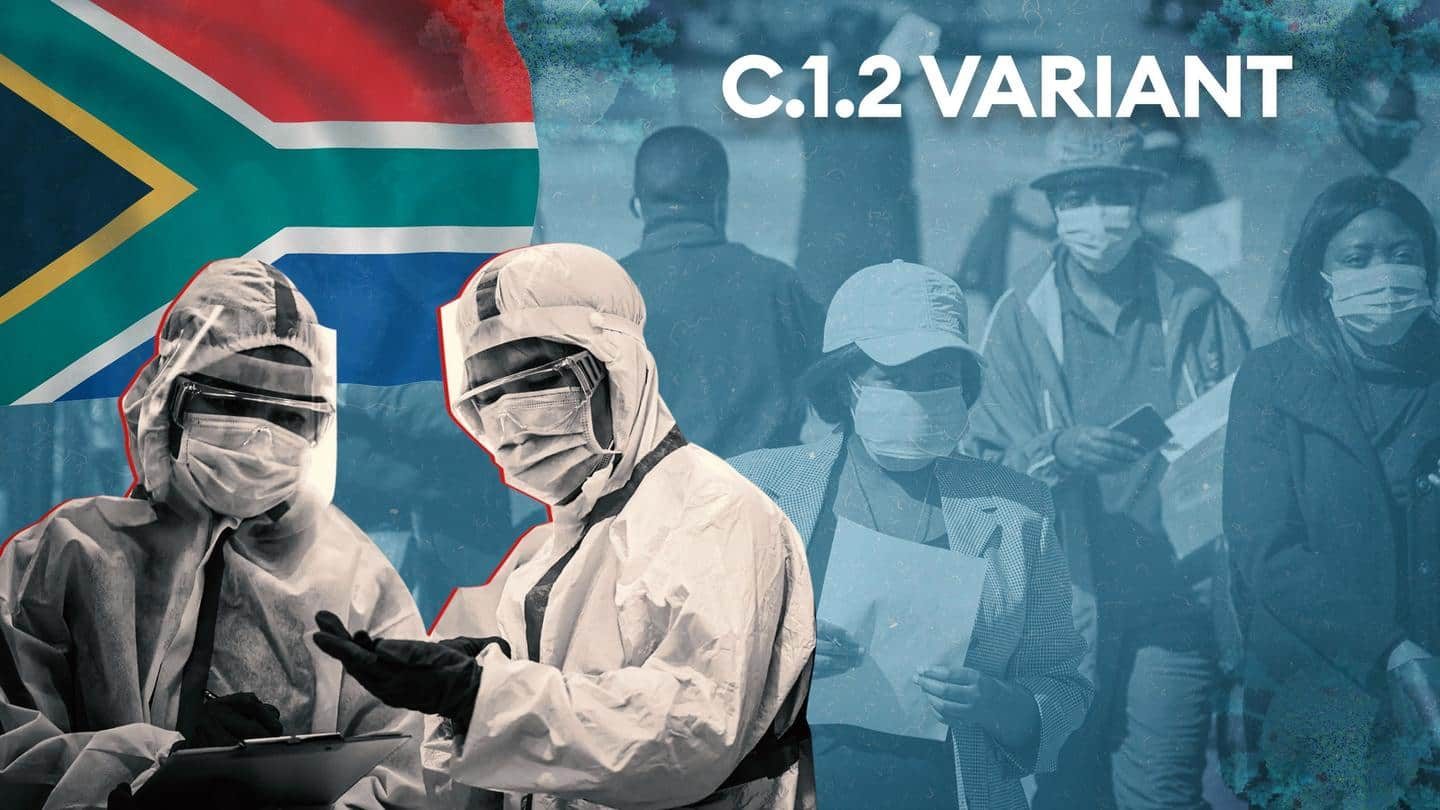
New C.1.2 variant of COVID-19 found. How dangerous is it?
What's the story
Scientists in South Africa have identified a new variant of the coronavirus, which they say is mutating at a rapid pace.
The C.1.2 variant has grabbed the attention of experts as it possesses mutations that are similar to those seen in several variants of interest or concern, including the Delta.
So, what do we know about this strain, and how dangerous can it be?
Origins
When and where did it emerge?
The C.1.2 variant was first detected in the Mpumalanga and Gauteng provinces of South Africa in May this year, according to a pre-print study that has not been peer-reviewed yet.
As of mid-August, the strain has spread to at least six provinces of the country, besides the Democratic Republic of the Congo, Mauritius, New Zealand, Portugal, and Switzerland, the paper further states.
Characteristics
What are the characteristics of the strain?
Worryingly, the C.1.2 is undergoing 41.8 mutations per year, which is nearly double the current global rate of coronavirus mutations.
It carries several mutations that have previously been identified in the existing Variants of Concern (like Alpha, Beta, Delta, and Gamma) and Variants of Interest (Kappa, Eta, and Lambda).
But it also has additional mutations like Y449H at its receptor-binding domain.
WHO
Has the WHO listed it?
The World Health Organization (WHO) is studying the variant but has not yet categorized it as a Variant of Concern or Variant of Interest.
Variants of Concern are those which show increase in virulence and/or transmissibility, and a decreased effectiveness of public health measures.
Variants of Interest are those found to cause community transmission in multiple clusters, but aren't necessarily more virulent or transmissible.
Cases
How many cases have been reported?
Dr. Maria Van Kerkhove, the technical lead of the WHO, recently said that around 100 sequences of the C.1.2 variant have been reported around the world so far.
"At this time, C.1.2 does not appear to be going upward in circulation, but we need more sequencing to be conducted," she tweeted.
India has not reported a case of this variant yet, government sources said.
Vaccines
Will vaccines work against this variant?
The said study noted that some of the mutations the C.1.2 variant carries may improve its ability to evade immunity generated from prior infection or vaccination.
"Based on our understanding of the mutations in this variant, we suspect that it might be able to partially evade the immune response," South Africa's National Institute for Communicable Diseases said.
But experts say more studies are needed.
Experts
Experts are keeping an eye out
"It contains quite a few key mutations that we see in other variants that have gone on to become variants of interest or concern," said Dr. Megan Steain, a lecturer with the University of Sydney's Central Clinical School.
"We'd like to keep an eye on the variant," she told The Guardian.
She, however, added that the strain's prevalence is still "really low."